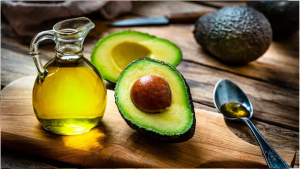The distinction between A1 and A2 milk has been creating quite a stir among health-conscious consumers. Whether you’re in Mumbai or any other bustling city, the debate over A1 vs A2 milk continues to intrigue those seeking healthier dietary choices. But what exactly sets these two types of milk apart, and why should consumers pay attention to the difference?
Let’s get into the world of A1 vs A2 cow milk, exploring their unique properties, potential health benefits, and how they affect our overall well-being.
What is A1 and A2 Milk?
Before diving into the comparisons, it’s essential to understand what A1 and A2 milk actually are.
A1 and A2 refer to specific types of beta-casein proteins found in cow’s milk. While both A1 and A2 proteins are produced by cows, their genetic makeup determines which type predominates in the milk they produce.
A1 Milk: This type of milk contains a higher proportion of A1 beta-casein protein. Certain cow breeds, such as Holsteins and Friesians, predominantly produce A1 milk. Research has shown that while this type of protein is healthy, it may not be suitable for a large demography for consumption.
A2 Milk: On the other hand, A2 milk contains predominantly A2 beta-casein protein. This type of milk is produced by breeds like the Guernsey, Jersey, and certain Asian and African cow breeds. When it comes to A2 milk vs A1 milk, it wouldn’t be wrong to say that this variant is better suited for a lot of our daily necessities.
A1 vs A2 Milk: Understanding the Differences
Now that we have a basic understanding of A1 and A2 milk let’s explore the key differences between the two:
Digestibility: One of the primary distinctions between A1 and A2 milk lies in their digestibility. Research suggests that A2 milk may be easier to digest for some individuals compared to A1 milk. This is attributed to the structure of the A2 beta-casein protein, which is believed to be more compatible with the human digestive system.
Potential Health Impacts: Some studies have suggested that consumption of A1 milk may be linked to certain health issues, including digestive discomfort and inflammation. Conversely, A2 milk is often touted as a healthier alternative, with proponents claiming it may offer benefits such as improved digestion and reduced inflammation.
Genetic Variability: The type of beta-casein protein present in milk is determined by the genetic makeup of the cow. Breeds that predominantly produce A1 milk typically carry the genetic variant for A1 beta-casein, while those that produce A2 milk carry the genetic variant for A2 beta-casein. This genetic variability underscores the importance of breed selection in determining milk composition.
Cultural Significance: In regions like Mumbai, where dairy consumption is deeply ingrained in the culture, the distinction between A1 and A2 milk holds significant importance. Traditional cow breeds in India, such as the Gir and Sahiwal, are known for producing A2 milk, which has been consumed for generations.
Market Availability: While A1 milk remains widely available in many markets, there has been a growing demand for A2 milk in recent years. Companies specializing in A2 milk production have emerged, catering to consumers seeking an alternative to conventional dairy products.
A2 Milk in Mumbai: Meeting Consumer Demand
In Mumbai, the demand for A2 milk has been steadily increasing as consumers become more discerning about the quality of the dairy products they consume. With its purported health benefits and superior digestibility, A2 milk has garnered a loyal following among health-conscious individuals, even those without traditional lactose intolerances.
The availability of A2 milk in Mumbai has expanded significantly in recent years, with various dairy farms and producers offering A2 milk products to meet the growing demand. This includes fresh A2 milk, as well as value-added products such as A2 ghee and A2 paneer.
Consumers in Mumbai are increasingly opting for A2 milk due to its perceived health benefits and superior taste. Many have reported experiencing fewer digestive issues and overall better well-being after making the switch from conventional A1 milk.
Making Informed Choices: A2 Milk vs A1 Milk
When it comes to choosing between A1 and A2 milk, consumers are encouraged to make informed decisions based on their individual preferences and dietary needs. While both types of milk provide essential nutrients such as calcium and protein, the differences in digestibility and potential health impacts may influence one’s choice.
For those experiencing digestive discomfort or seeking a dairy alternative, A2 milk may offer a viable solution. Its reputation for improved digestibility and potential health benefits make it an attractive option for many consumers, including those in Mumbai and beyond.
However, it’s essential to remember that individual responses to milk can vary, and what works well for one person may not necessarily apply to another. It is suggested that you consult a nutritionist if you are concerned about the type of milk that would fit your requirements in the best possible manner.
Conclusion: The Superiority of A2 Milk
The debate between A1 vs A2 milk continues to captivate consumers worldwide, including those in Mumbai. While both types of milk have their merits, the potential health benefits and digestibility of A2 milk make it a compelling choice for many individuals.
As consumer awareness grows and demand for healthier dairy alternatives increases, A2 milk is poised to become a staple in households seeking optimal nutrition and well-being. Whether you’re in Mumbai or any other part of the world, understanding the differences between A1 and A2 milk empowers you to make informed choices that support your health and lifestyle goals. Something similar can be said about the emergence of bilona ghee as the preferred choice as well.
So, the next time you’re browsing the dairy aisle or placing an order for milk delivery, consider giving A2 milk a try. Your body and taste buds may thank you for it!



